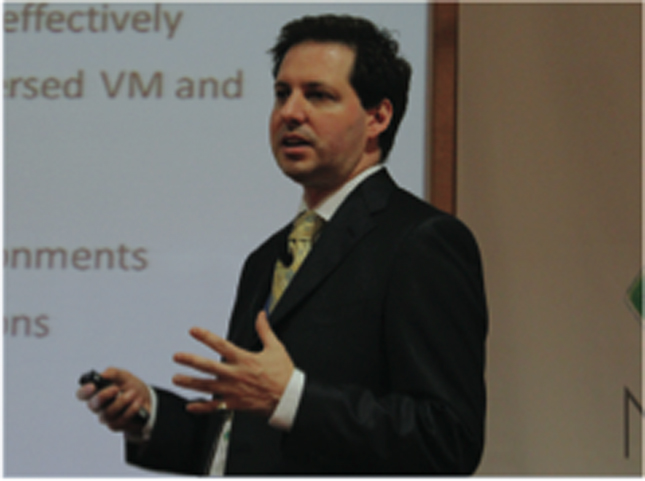01 May 2014

CloudEthernet Forum president James Walker said an industry-wide cooperative approach to creating standards is vital to avoid cloud fragmentation.
The CloudEthernet Forum (CEF) has begun vital work on defining the CloudE 1.0 standards.
Speaking at Interop in Las Vegas at the end of last month, CEF president James Walker, said: “What are the basic standards that need to be met for a workable Cloud Ethernet service? The industry must decide a set of vendor-neutral networking criteria without which cloud services cannot realistically be supported. This is a co- operative process.”
Walker said the CEF now planned to recruit the “brightest brains and most experienced practitioners” to lead each of
thefivefundamentalareasunderwhichits work is currently grouped. It describes these areas as ‘VASPA’ – virtualisation, automation, security, programmability and analytics (see News, Dec 2013).
The CEF has already begun developing reference architecture for cloud definitions, and is also in discussions with existing standards bodies to make sure that its work is in alignment with theirs. The aim this year is to decide initial and fundamental criteria for Cloud Ethernet which will be called ‘CloudE 1.0’.
Walker said that all this work was “vitally important” to avoid cloud fragmentation.
“The shift to cloud computing is as fundamental and far-reaching as the shift from mainframe to personal computer that did so much to boost business in the eighties. But initially what hindered the transition was the rapid fragmentation of the PC market into rival operating systems.
“The same could happen to cloud serv- ices under rival cloud providers – unless we can define standards for an industry- wide global open cloud environment. CloudE 1.0 is our first step on the path to the open cloud.”
The CEF also announced the creation of its Open Cloud Project at Interop. This will
focus on creating an open test and iterative standards development programme for service providers, industry vendors and over-the-top cloud service providers. Initial work will be focused on three areas: application performance management, cloud security and traffic load balancing.










